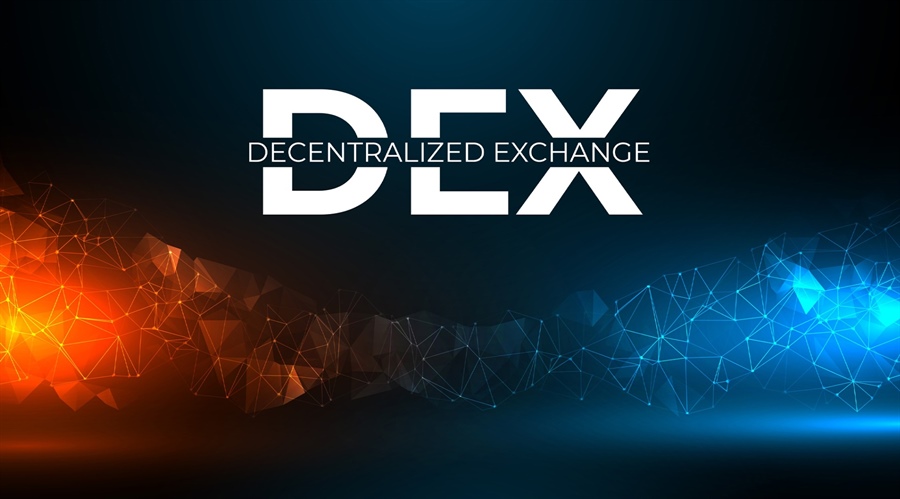Decentralizedexchanges (DEXs) are an important part of the cryptocurrency ecosystem becausethey allow users to trade digital assets without relying on centralizedintermediaries.
While DEXs havebeen around for a while, they have recently gained popularity due to a varietyof factors such as technological advancements, the growth of the DeFiecosystem, and concerns about the security of centralized exchanges.
In thisarticle, we will look at the revival of DEXsincluding their benefits,challenges, and prospects for the future.
WhatAre DEXs?
A decentralizedexchange is a peer-to-peer marketplace that allows users to buy, sell, andtrade cryptocurrencies without the use of middlemen.
Unlikecentralized exchanges, which rely on a third party to manage users’ funds, DEXsexecute trades automatically using smart contracts and blockchain technology.
DEXs provideseveral advantages, including increased privacy, enhanced security, andincreased transparency.
Users can tradecryptocurrencies anonymously because DEXs are not controlled by a centralizedentity, allowing them to avoid disclosing their identity or personalinformation.
Additionally,DEXs are more resistant to hacking and cyberattacks because they aredecentralized and do not have a single point of failure.
DEXResurrection
While DEXs havebeen around for a while, they have recently gained popularity due to a numberof factors, including:
TechnologicalProgress
The developmentof new technologies that have made DEXs more efficient and user-friendly is oneof the primary reasons for their recent resurgence.
Advances inblockchain technology, particularly the emergence of the Ethereum network, havefacilitated the development of more sophisticated DEXs capable of handling abroader range of assets and transactions.
TheRise of DeFi
The expansionof the decentralized finance (DeFi) ecosystem is another key driver of therevival of DEXs. DeFi has grown in popularity in the last year, offering usersa variety of decentralized financial services like lending, borrowing, andtrading.
DEXs are animportant part of the DeFi ecosystem because they allow users to trade digitalassets without relying on centralized intermediaries.
Concernsabout Centralized Trading
Recent securitybreaches and hacks at centralized exchanges have raised concerns about theplatforms’ safety and security.
These incidentshave highlighted the dangers of storing large amounts of cryptocurrency oncentralized exchanges, which can be hacked and stolen. DEXs provide analternative solution by giving users more control over their funds and loweringthe risk of security breaches.
DEXs’Difficulties
Despite theirnumerous advantages, DEXs face a number of challenges that must be addressed inorder for them to continue to grow and succeed. Among the major challenges are:
Liquidity
Liquidity isone of the most difficult issues that DEXs face. DEXs can suffer from lowliquidity because they rely on peer-to-peer trading, making it difficult forusers to execute trades quickly and efficiently. This can be especiallydifficult for users who want to trade less popular cryptocurrencies or makelarger transactions.
Complexity
Anotherchallenge facing DEXs is complexity. DEXs can be more complex and difficult tonavigate than centralized exchanges, which provide users with a simple anduser-friendly interface.
This can be astumbling block for new users, especially those unfamiliar with blockchaintechnology or smart contracts.
PriceTurbulence
Pricevolatility is another issue that DEXs face. Prices on DEXs can be more volatilethan those on centralized exchanges because they rely on peer-to-peer trading.This makes it difficult for users to obtain a fair price for their trades andincreases the risk of loss.
DEXs’Future Prospects
Decentralizedexchanges (DEXs) have recently gained popularity as a result of technologicaladvancements, the expansion of the DeFi ecosystem, and security concerns aboutcentralized exchanges. Despite a number of challenges, the future of DEXs lookspromising, with the potential to revolutionize the cryptocurrency industry.
Here are a fewreasons why DEXs have a bright future:
EnhancedAdoption
As thecryptocurrency market expands, we can anticipate increased use of DEXs. Whilecentralized exchanges currently dominate the market, decentralized exchanges(DEXs) are gaining popularity as users seek greater control over their fundsand more secure trading environments.
As more usersadopt DEXs, we can anticipate an increase in liquidity, making trade executioneasier and faster.
Connectionto DeFi
DEXs are animportant part of the DeFi ecosystem because they allow users to trade digitalassets without relying on centralized intermediaries. As the DeFi ecosystemgrows and matures, we can expect even more integration between DEXs and otherDeFi services like lending, borrowing, and staking.
Thisintegration will make it easier for users to access a variety of financialservices while remaining decentralized and secure.
TechnologicalAdvancements
One of theprimary drivers of the recent resurgence of DEXs is advances in technology,particularly blockchain technology. We can expect even more efficient anduser-friendly DEXs as blockchain technology evolves and becomes moresophisticated.
Newtechnologies such as layer 2 solutions and sidechains, can help toimprove scalability and reduce transaction fees, making DEXs more accessible toa broader range of users.
Clarityin Regulation
Regulatoryclarity is another factor that could contribute to the future success of DEXs.While DEXs are currently largely unregulated, we can expect increasedregulatory scrutiny as the market matures.
Clear andsupportive regulatory frameworks, on the other hand, can help to encourageinnovation and investment in the DEX ecosystem, resulting in greater adoptionand growth.
EnhancedSecurity
One of theprimary advantages of DEXs is increased security. DEXs, as opposed tocentralized exchanges, are more resistant to hacking and cyberattacks due totheir decentralized and trustless nature.
As DEXtechnology and security protocols improve, we can expect even higher levels ofsecurity and trust in these platforms.
What Are the Pros and Cons of Using DEXs in 2023?
DEXs stood torevolutionize the financial sector in their own way, however, not everything islinear when it comes to trading in a decentralized exchange.
As such, it is importantto understand that there are so very good counterpoints to DEX’s perceived competitiveadvantages.
A pro thattraders immediately highlight is the fact that DEXs have no central authority.They use smart contracts, which are in essence code that allows multiple partiesto enter an agreement and follow through exactly as it is coded and without anypossible deviations or mischief.
A counterpoint tothat is that you alone bear the responsibility of your trades, which means thatthere’s no customer support to help you if you happen to enter a contract whichyou do not understand, buy a random scam coin, or see your funds go to a differentaddress.
Beingdecentralized also means you’ll need the technical skills to thoroughlyunderstand the smart contracts you’re getting yourself into.
This leadsdirectly to another pro and con: open-source codes. Open-source code is afantastic way to ensure transparency. However, it leaves your vulnerabilitiesout in the open as well. And, promoting open code is a good thing but might alsomislead investors that something is automatically safe when it might not be.
These points andcounterpoints to using and trading in decentralized exchanges all point to thesame underlying issue and highlight the same rule of thumb: it is all on you,so make sure to check and double-check whichever smart contract or coin you areabout invest in.
WrappingUp
The recentsurge in the popularity of decentralized exchanges (DEXs) can be attributed to anumber of factors, including technological advancements, the expansion of theDeFi ecosystem, and security concerns about centralized exchanges.
Despite anumber of challenges, the future of DEXs looks promising, with the potential torevolutionize the cryptocurrency industry.
Increasedadoption, integration with DeFi, technological advances, regulatory clarity,and improved security are all likely to contribute to DEXs’ continued growthand success.
However,investors should keep in mind that investing in cryptocurrencies and trading onany exchange entails risks, and they should conduct thorough research andconsider their risk tolerance before making any investment decisions.
As thecryptocurrency market evolves and matures, it will be fascinating to see howDEXs and other decentralized finance solutions evolve and shape the future offinance.
For the timebeing, it is clear that DEXs have piqued the interest of both cryptoenthusiasts and investors, and they will continue to play an important role inthe expanding DeFi ecosystem.
Decentralizedexchanges (DEXs) are an important part of the cryptocurrency ecosystem becausethey allow users to trade digital assets without relying on centralizedintermediaries.
While DEXs havebeen around for a while, they have recently gained popularity due to a varietyof factors such as technological advancements, the growth of the DeFiecosystem, and concerns about the security of centralized exchanges.
In thisarticle, we will look at the revival of DEXsincluding their benefits,challenges, and prospects for the future.
WhatAre DEXs?
A decentralizedexchange is a peer-to-peer marketplace that allows users to buy, sell, andtrade cryptocurrencies without the use of middlemen.
Unlikecentralized exchanges, which rely on a third party to manage users’ funds, DEXsexecute trades automatically using smart contracts and blockchain technology.
DEXs provideseveral advantages, including increased privacy, enhanced security, andincreased transparency.
Users can tradecryptocurrencies anonymously because DEXs are not controlled by a centralizedentity, allowing them to avoid disclosing their identity or personalinformation.
Additionally,DEXs are more resistant to hacking and cyberattacks because they aredecentralized and do not have a single point of failure.
DEXResurrection
While DEXs havebeen around for a while, they have recently gained popularity due to a numberof factors, including:
TechnologicalProgress
The developmentof new technologies that have made DEXs more efficient and user-friendly is oneof the primary reasons for their recent resurgence.
Advances inblockchain technology, particularly the emergence of the Ethereum network, havefacilitated the development of more sophisticated DEXs capable of handling abroader range of assets and transactions.
TheRise of DeFi
The expansionof the decentralized finance (DeFi) ecosystem is another key driver of therevival of DEXs. DeFi has grown in popularity in the last year, offering usersa variety of decentralized financial services like lending, borrowing, andtrading.
DEXs are animportant part of the DeFi ecosystem because they allow users to trade digitalassets without relying on centralized intermediaries.
Concernsabout Centralized Trading
Recent securitybreaches and hacks at centralized exchanges have raised concerns about theplatforms’ safety and security.
These incidentshave highlighted the dangers of storing large amounts of cryptocurrency oncentralized exchanges, which can be hacked and stolen. DEXs provide analternative solution by giving users more control over their funds and loweringthe risk of security breaches.
DEXs’Difficulties
Despite theirnumerous advantages, DEXs face a number of challenges that must be addressed inorder for them to continu e to grow and succeed. Among the major challenges are:
Liquidity
Liquidity isone of the most difficult issues that DEXs face. DEXs can suffer from lowliquidity because they rely on peer-to-peer trading, making it difficult forusers to execute trades quickly and efficiently. This can be especiallydifficult for users who want to trade less popular cryptocurrencies or makelarger transactions.
Complexity
Anotherchallenge facing DEXs is complexity. DEXs can be more complex and difficult tonavigate than centralized exchanges, which provide users with a simple anduser-friendly interface.
This can be astumbling block for new users, especially those unfamiliar with blockchaintechnology or smart contracts.
PriceTurbulence
Pricevolatility is another issue that DEXs face. Prices on DEXs can be more volatilethan those on centralized exchanges because they rely on peer-to-peer trading.This makes it difficult for users to obtain a fair price for their trades andincreases the risk of loss.
DEXs’Future Prospects
Decentralizedexchanges (DEXs) have recently gained popularity as a result of technologicaladvancements, the expansion of the DeFi ecosystem, and security concerns aboutcentralized exchanges. Despite a number of challenges, the future of DEXs lookspromising, with the potential to revolutionize the cryptocurrency industry.
Here are a fewreasons why DEXs have a bright future:
EnhancedAdoption
As thecryptocurrency market expands, we can anticipate increased use of DEXs. Whilecentralized exchanges currently dominate the market, decentralized exchanges(DEXs) are gaining popularity as users seek greater control over their fundsand more secure trading environments.
As more usersadopt DEXs, we can anticipate an increase in liquidity, making trade executioneasier and faster.
Connectionto DeFi
DEXs are animportant part of the DeFi ecosystem because they allow users to trade digitalassets without relying on centralized intermediaries. As the DeFi ecosystemgrows and matures, we can expect even more integration between DEXs and otherDeFi services like lending, borrowing, and staking.
Thisintegration will make it easier for users to access a variety of financialservices while remaining decentralized and secure.
TechnologicalAdvancements
One of theprimary drivers of the recent resurgence of DEXs is advances in technology,particularly blockchain technology. We can expect even more efficient anduser-friendly DEXs as blockchain technology evolves and becomes moresophisticated.
Newtechnologies such as layer 2 solutions and sidechains, can help toimprove scalability and reduce transaction fees, making DEXs more accessible toa broader range of users.
Clarityin Regulation
Regulatoryclarity is another factor that could contribute to the future success of DEXs.While DEXs are currently largely unregulated, we can expect increasedregulatory scrutiny as the market matures.
Clear andsupportive regulatory frameworks, on the other hand, can help to encourageinnovation and investment in the DEX ecosystem, resulting in greater adoptionand growth.
EnhancedSecurity
One of theprimary advantages of DEXs is increased security. DEXs, as opposed tocentralized exchanges, are more resistant to hacking and cyberattacks due totheir decentralized and trustless nature.
As DEXtechnology and security protocols improve, we can expect even higher levels ofsecurity and trust in these platforms.
What Are the Pros and Cons of Using DEXs in 2023?
DEXs stood torevolutionize the financial sector in their own way, however, not everything islinear when it comes to trading in a decentralized exchange.
As such, it is importantto understand that there are so very good counterpoints to DEX’s perceived competitiveadvantages.
A pro thattraders immediately highlight is the fact that DEXs have no central authority.They use smart contracts, which are in essence code that allows multiple partiesto enter an agreement and follow through exactly as it is coded and without anypossible deviations or mischief.
A counterpoint tothat is that you alone bear the responsibility of your trades, which means thatthere’s no customer support to help you if you happen to enter a contract whichyou do not understand, buy a random scam coin, or see your funds go to a differentaddress.
Beingdecentralized also means you’ll need the technical skills to thoroughlyunderstand the smart contracts you’re getting yourself into.
This leadsdirectly to another pro and con: open-source codes. Open-source code is afantastic way to ensure transparency. However, it leaves your vulnerabilitiesout in the open as well. And, promoting open code is a good thing but might alsomislead investors that something is automatically safe when it might not be.
These points andcounterpoints to using and trading in decentralized exchanges all point to thesame underlying issue and highlight the same rule of thumb: it is all on you,so make sure to check and double-check whichever smart contract or coin you areabout invest in.
WrappingUp
The recentsurge in the popularity of decentralized exchanges (DEXs) can be attributed to anumber of factors, including technological advancements, the expansion of theDeFi ecosystem, and security concerns about centralized exchanges.
Despite anumber of challenges, the future of DEXs looks promising, with the potential torevolutionize the cryptocurrency industry.
Increasedadoption, integration with DeFi, technological advances, regulatory clarity,and improved security are all likely to contribute to DEXs’ continued growthand success.
However,investors should keep in mind that investing in cryptocurrencies and trading onany exchange entails risks, and they should conduct thorough research andconsider their risk tolerance before making any investment decisions.
As thecryptocurrency market evolves and matures, it will be fascinating to see howDEXs and other decentralized finance solutions evolve and shape the future offinance.
For the timebeing, it is clear that DEXs have piqued the interest of both cryptoenthusiasts and investors, and they will continue to play an important role inthe expanding DeFi ecosystem.










